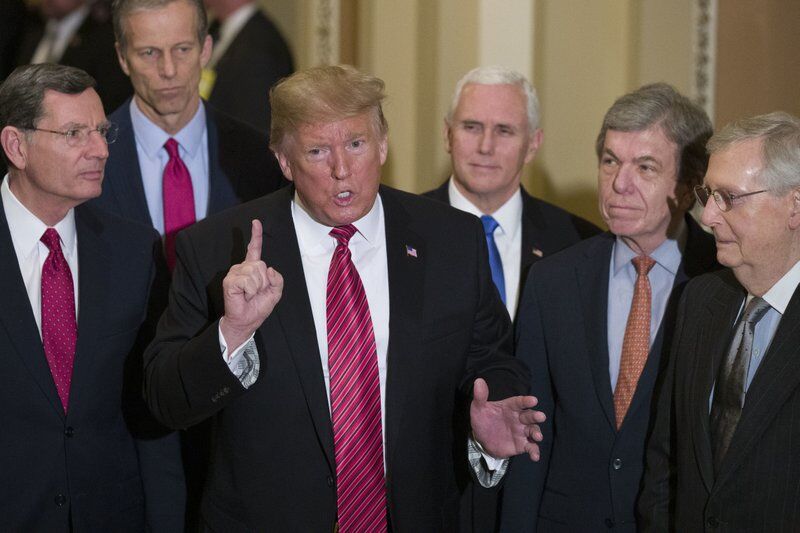The GOP Remains the Party of Donald Trump
Trump will make a lasting impact on the GOP party.
February 24, 2021
Two impeachments, a rampant pandemic and an insurrection on Capitol Hill: these are and will likely remain the refining moments of Donald Trump’s tumultuous tenure as President of the United States. One might assume that a president so divisive and controversial, who has stained the legacy of his party and administration, would face universal condemnation and disdain, having now been stripped of his executive powers.
In part, this is true; Trump’s disapproval rating parting the White House stood at 57.9 percent according to an aggregate of major polls by FiveThirtyEight. In addition, all Democrat and even seven Republican senators, voted to convict the former president on incitement of insurrection.
Despite this, evidence suggests Trump has not lost a foothold within his own party. A recent Quinnipiac poll found that 75 percent of Republicans say that they would like to see Trump play a prominent role in the Republican Party. It seems that vilification from the Democratic party, banishment from social media and a barrage of legal accusations has done little to sway Republicans’ favorable opinions. In fact, 89 percent of Republicans stated they were against convicting Trump in the same poll.
Additionally, a CBS poll found that 33 percent of Republicans surveyed would join a third party founded by Trump. This mark of unwavering loyalty underlines the former president’s overwhelming partisan support. He has unequivocally managed to persist as the face of the GOP, a matter largely up in the air during the latter months of his presidency.
It seems that Trump’s popularity has also reinvigorated his “America First” policy approach. Most party members still praise what they believe to be his administration’s greatest accomplishments: strong pre-COVID economic development, a tough stance on China and multiple conservative Supreme Court nominations. In light of this, many GOP politicians and campaigns have adopted pro-Trump policies and approaches. An exemplar of this is former Ohio state treasurer Josh Mandel, who seeks control of retiring GOP Senator Rob Portman’s seat.
In bold white print, Mandel’s website reads that he, “Vows to continue the fight for President Trump’s America First Agenda and to pulverize the Uniparty in Washington.”
Mandel and many other early GOP candidates have cited instances like the recent impeachment trial as motivations for their campaign. Trump is still in favor with rank-and-file Republican voters, and Republican campaigns will continue to capitalize upon this reality.
These trends are consistent in other battleground states, like Pennsylvania, as well. Trump’s ultimate demise in states like Pennsylvania arose from his failure to pull votes in major suburbs around Philadelphia and Pittsburgh. Despite this, most party officials believe disavowing Trump would only hurt the GOP’s odds of winning upcoming senatorial and gubernatorial races.
The Chairman of the Delaware County GOP, which encompasses many of the suburbs Trump lost last November, said, “In the western part of the state, they love the guy, so to walk away from Trump, you lost the Trump base, and you can’t afford to lose the Trump base.”
Trump has proven that his influence in the Republican party is far from waning. A profusely loyal base, particularly around rural America, has allowed him to persist as the face of the GOP post-presidency. Republican strategists are now challenged with prolonging the former president’s political platform while trying to put behind the vulgar rhetoric that turned away many independents and suburban Republican voters in 2020. Whether or not this strategy is successful, Trump’s legacy will be felt in the party for years to come and his parting words, “see you soon,” suggest a direct return to GOP politics is only inevitable.


